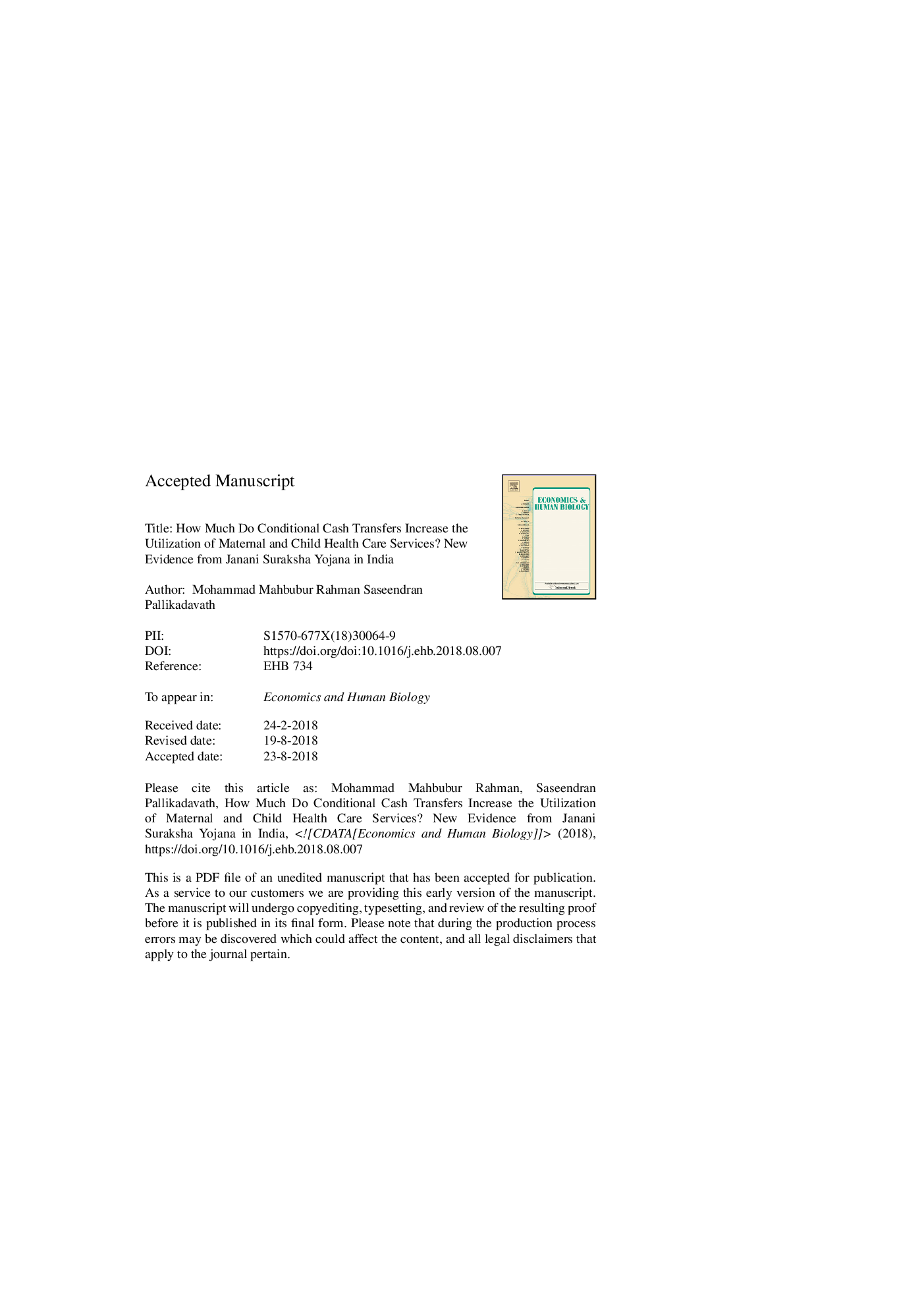| Article ID | Journal | Published Year | Pages | File Type |
|---|---|---|---|---|
| 11004769 | Economics & Human Biology | 2018 | 33 Pages |
Abstract
Janani Suraksha Yojana (safe motherhood scheme, or JSY) provides cash incentives to marginal pregnant women in India conditional on having mainly institutional delivery. Using the fourth round of district level household survey (DLHS-4), we have estimated its effects on both intended and unintended outcomes. Our estimates of average treatment effect on the treated (ATT) from propensity score matching are remarkably higher than those found in previous prominent studies using the second and third rounds of the survey (DLHS-2 and DLHS-3). When we apply fuzzy regression discontinuity design exploiting the second birth order, our estimates of local average treatment effect (LATE) are much higher than that of ATT. For example, due to JSY, institutional delivery increases by around 16 percentage points according to ATT estimate but about 23 percentage points according to LATE estimate.
Related Topics
Life Sciences
Agricultural and Biological Sciences
Agricultural and Biological Sciences (General)
Authors
Mohammad Mahbubur Rahman, Saseendran Pallikadavath,
